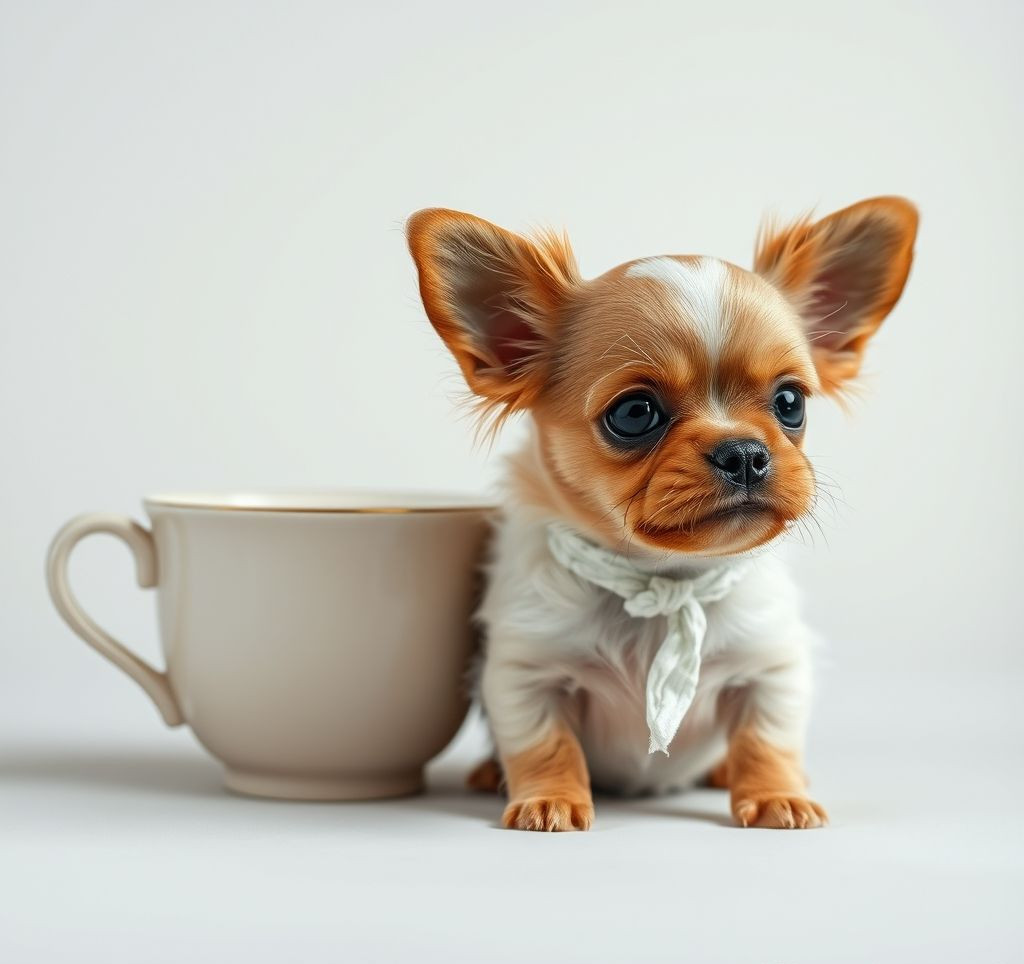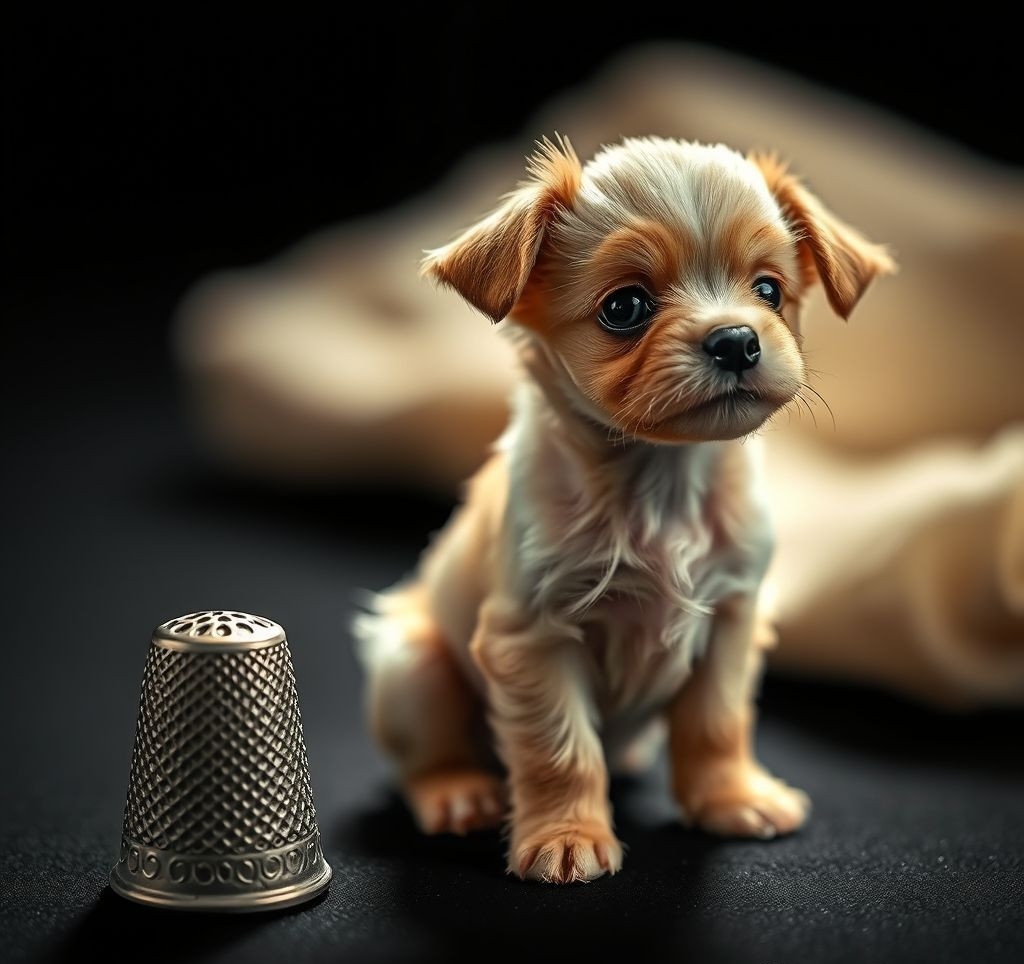Understanding the Nuances of Adopting Smaller Canine Companions
The allure of an exceptionally small canine companion is undeniable. For many, the idea of bringing a tiny breed into their home sparks joy and affection. However, when considering teacup dogs for adoption, a deeper understanding beyond their diminutive size is paramount. This guide aims to equip prospective adopters with the essential knowledge to navigate this journey responsibly, focusing on the well-being of these delicate animals and ensuring a match that benefits both pet and owner.
The Importance of Informed Decisions When Seeking Tiny Breeds for Adoption
Opting for teacup dogs for adoption requires careful consideration due to the unique aspects associated with very small animals. Making an informed decision ensures a higher likelihood of a successful, long-term relationship and prioritizes the animal’s welfare. Key reasons why this knowledge is crucial include:
- Health Considerations: Very small dogs can be predisposed to specific health vulnerabilities that require attentive care and potentially specialized veterinary attention.
- Ethical Breeding Practices: Understanding where these tiny dogs come from helps avoid supporting unethical breeding operations that may prioritize size over health and temperament.
- Matching Lifestyle: Ensuring a tiny breed’s needs align with your home environment and activity levels is vital for their happiness and your own.
- Lifelong Commitment: All pets are a commitment, but the specific needs of smaller breeds warrant thorough research to ensure you can provide the necessary lifelong care.
Foundational Knowledge for Adopting Miniature Canine Friends
Before embarking on your search for teacup dogs for adoption, it’s beneficial to understand the general characteristics and care requirements of very small dog breeds. While not all small dogs are bred to extreme miniature sizes, many adopted companions will be of breeds naturally inclined to be petite. Understanding what constitutes a genuinely tiny breed versus those potentially bred for unhealthy extremes is key. For instance, while the Pomeranian breed typically ranges from 3-7 pounds, some individuals might be significantly smaller due to specific breeding lines. It’s important to distinguish between naturally small dogs and those bred to be unnaturally small.

Navigating the Process of Responsible Micro Dog Adoption
Finding a healthy and happy tiny dog through adoption is a rewarding experience. The focus should always be on finding a rescue organization or shelter that prioritizes the well-being of the animals. When looking for teacup dogs for adoption, here’s a
thoughtful approach:- Research Reputable Rescues: Seek out breed-specific rescues or general animal shelters that have experience with smaller breeds. Look for organizations with clear adoption policies and a commitment to animal health.
- Inquire About History: Ask detailed questions about the dog’s background, any known health issues, and their temperament. A good rescue will be transparent and thorough in answering.
- Understand Temperament: Tiny breeds can have big personalities! Learn about the typical temperament of the breed you’re interested in and assess if it matches your household.
- Veterinary Check-ups: Ensure any dog you are considering has had a recent veterinary examination. For dogs advertised as “teacup,” a close examination by a veterinarian is especially crucial.
- Avoid Unsubstantiated Claims: Be wary of sellers or individuals who make exaggerated claims about size or use terms like “teacup” without proper context or veterinary endorsement. The focus should always be on a healthy, well-adjusted companion. According to the American Kennel Club (AKC), while breed standards exist, individual dogs can vary, and focusing solely on an extreme size can be detrimental to health.
Expert Advice for Welcoming a Tiny Companion
Bringing a petite canine into your life can be incredibly fulfilling. Here are some expert tips to ensure a smooth transition and a happy life together:
- Gentle Handling: Always handle very small dogs with extreme care, as they are more fragile than larger breeds. Avoid rough play or allowing them to be handled by very young children unsupervised.
- Nutritional Needs: Consult with your veterinarian about the appropriate diet for a small breed. They may require specially formulated food to ensure they receive adequate nutrients without overeating.
- Scent Training: Some very small dogs may take to house training differently. Patience and consistent, positive reinforcement are key. Consider wee wee pads or a designated outdoor spot.
- Socialization: Proper socialization from a young age is crucial for all dogs, including tiny breeds, to develop into well-adjusted and confident adults. Ensure introductions to other people and well-behaved dogs are managed positively.
“The greatest pleasure of a dog is that you may make a fool of him and not only will he not object to it, you will actually think yourself cleverer for having done it.” – Samuel Butler (While not specific to size, this reflects the bond all dogs offer, regardless of stature.)
Ultimately, the decision to pursue teacup dogs for adoption should be rooted in a desire to provide a loving and secure home for a dog in need, understanding and embracing their unique requirements. By prioritizing health, responsible sourcing, and a genuine commitment to their well-being, you can find a wonderful tiny companion to share your life with.
“`



